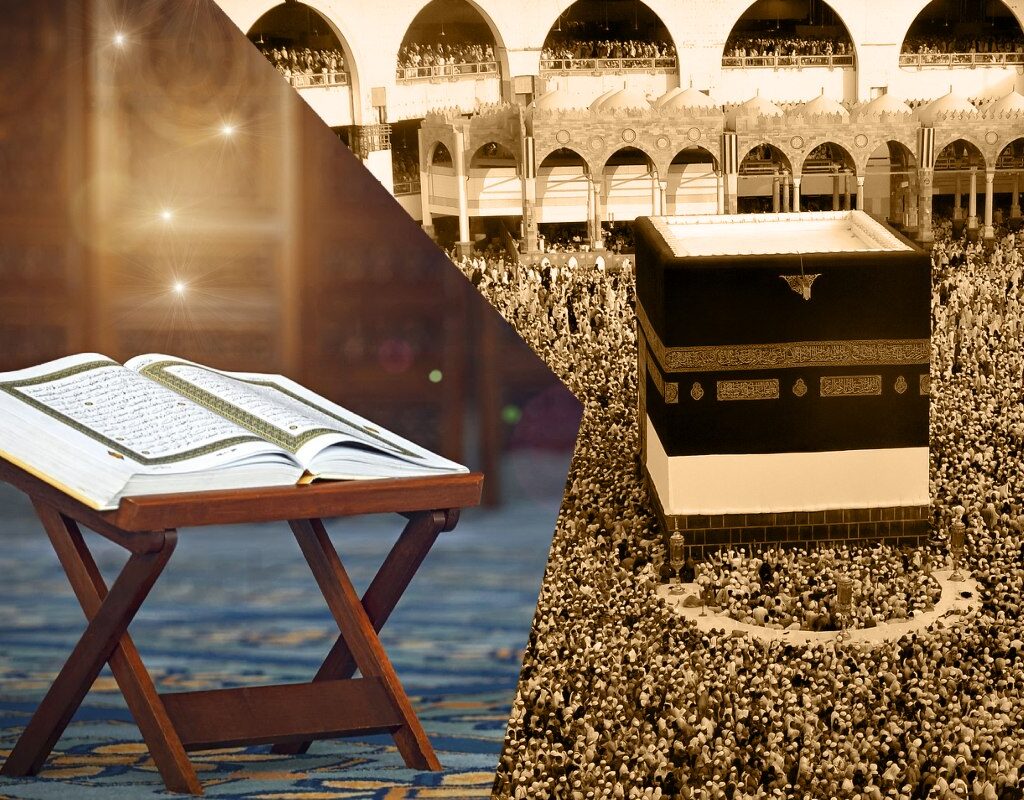In Medina, in 632, a man whose life transformed the annals of human history drew his final breath: Muhammad. Regarded as ‘the seal of the prophets’, his influence was monumental in the founding of Islam. Born in Mecca in 570, his childhood was marked by tragedy. Throughout his life, Muhammad rose to become a prophet, leader and unifier of Arab tribes.
Muhammad’s Rise: From Orphanhood to Divine Prophecy
On June 8, 632, in Medina, which was still far from evolving into the metropolis it is today in Saudi Arabia, the life of a man who had altered the course of humanity came to an end: Muhammad.
Founder of Islam and prophet of the one God for his followers, he is regarded as “the seal of the prophets,” which, according to some interpreters, signifies the culmination of the cycle of divine revelation in human history.
Muhammad, whose name may originally have been Ahmad, was born in Mecca, the sacred city of Muslim pilgrimage, in the year 570.
As a child, tragedy befell him early when he was orphaned at the age of six. However, he found shelter with his uncle Abu Talib, with whom he embarked on various trading journeys.
At the age of twenty-five, his marriage to the wealthy widow Khadija not only provided him with a family through their daughter Fatima but also elevated his social status as a respected merchant.
From Introspection to Prophecy
Muhammad’s Path to the Islamic Faith
During his life in Mecca, Muhammad became acquainted with Jewish and Christian beliefs through the communities residing there. This initial exposure laid the foundation for him to formulate his own religious vision, despite his limited formal education, which some even claim was nonexistent.
Upon reaching his forties, Muhammad embarked on a period of introspection and spiritual retreat. He spent long hours in a cave on Mount Hira, where he claimed to have received revelations from God—Allah—who spoke to him through the Archangel Gabriel, revealing the secrets of true faith.
Encouraged by Khadija’s support, he began preaching in Mecca, presenting himself as the successor to the great monotheistic prophets such as Abraham, Moses and Jesus.
Muhammad’s popularity surged primarily among the more impoverished sectors of society and as often happens, this popularity generated opposition among the powerful. The authorities began to regard him as a threat, accusing him of being an impostor and initiated persecution against him and his followers.
In 622, after the deaths of Khadija and Abu Talib and in the face of an increasingly hostile environment, Muhammad decided to leave Mecca and sought refuge in Medina. This episode, known as the Hijra, is considered the beginning of the Islamic era.
From Revelation to Conquest
Muhammad, Medina and the Emergence of Islam
In Medina, Muhammad encountered rejection from the Jewish community due to his interpretations of the Scriptures, leading him to understand that his preaching was not a continuation of Abraham’s faith but something entirely new.
And thus, Islam was born.
In this city, Muhammad established himself as a political and military leader, in addition to a religious one. Employing strategies that combined persuasion and force, he succeeded in rallying an increasing number of followers. The Muslims began raiding caravans and nearby settlements, laying the groundwork for a “holy war” to propagate their faith.
After a series of confrontations and negotiations, Muhammad achieved the conquest of Mecca in the year 630. There, the Kaaba sanctuary and its revered Black Stone were consecrated to Allah.
In a profoundly symbolic act, Muhammad embarked on a pilgrimage from Medina to Mecca shortly before his death, establishing a ritual that endures to this day and that every Muslim is expected to undertake at least once in their lifetime.
The Power of the Word
The Quran as the Foundation of Muhammad’s Islamic Expansion
Muhammad was not only a leader; he was also the architect of Islamic theology, embodied in the Quran. This sacred book is a compilation of revelations believed to be inspired by Allah, gathered during Muhammad’s lifetime and compiled around the year 650.
In the latter years of his life, Muhammad succeeded in spreading Islam throughout the Arabian Peninsula, unifying the various tribes that inhabited the region and transforming them into people united under a single faith.
Few could have envisioned that a man born in an undeveloped region and into a humble family would be capable of unifying and leading the Arab tribes on an unprecedented expansion.
Muhammad achieved this but upon his death, which occurred without him leaving a male heir, a fierce dispute over his succession ensued. Eventually, the leadership passed to Abu Bakr, his father-in-law, who became the first Caliph.
Muhammad
The Prophet Who Redefined History and Continues to Inspire Generations
Muhammad, a man who transcended history and borders, remains an icon and spiritual guide for over a billion Muslims worldwide.
With a life shrouded in legend and a mission that altered the course of humanity, Prophet Muhammad’s legacy continues to shape culture, politics and religion today.





